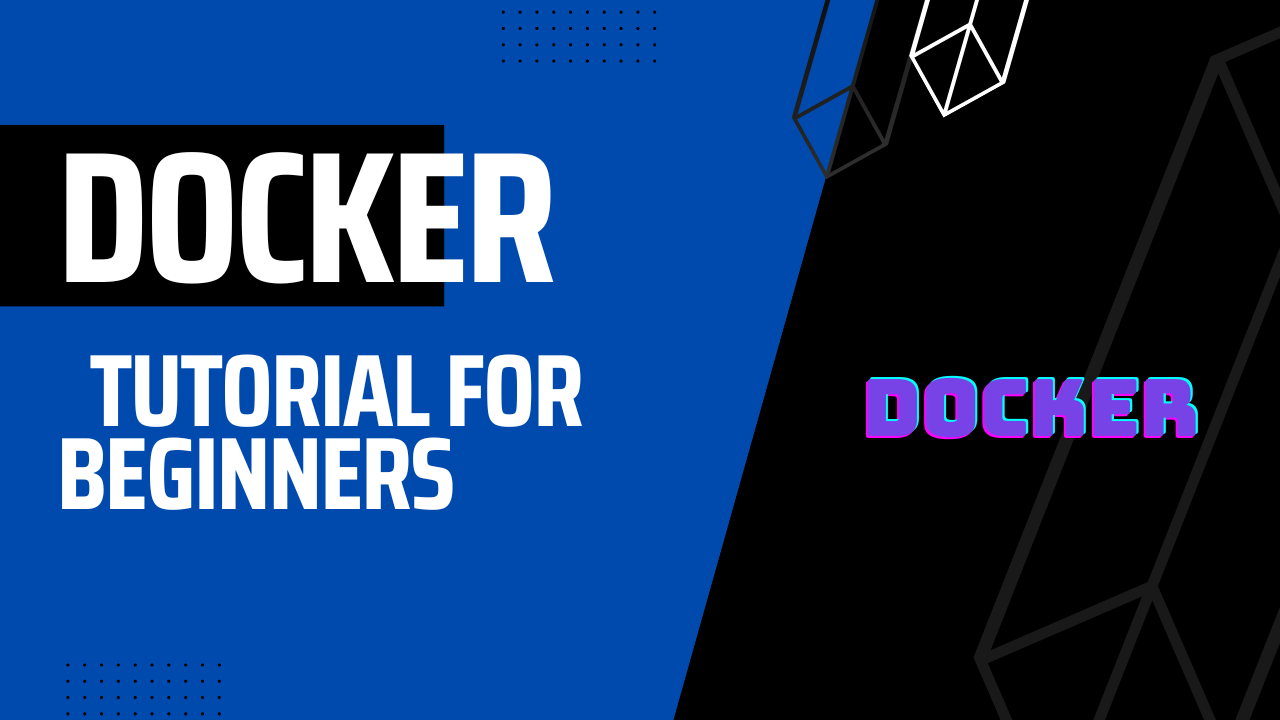Docker tutorial for beginners
Revolutionizing Software Development and Deployment
In the world of software development and deployment, efficiency and scalability are paramount. Docker, an open-source platform, has emerged as a game-changer, enabling developers to streamline their workflows, enhance collaboration, and simplify the deployment process. This docker tutorial explores the fundamentals of Docker, its key benefits, and its impact on the software industry through real-world examples.

Understanding Docker
Docker is a containerization platform that allows developers to package applications and their dependencies into lightweight, self-contained units called containers. These containers are isolated environments that encapsulate an application’s code, runtime, system tools, libraries, and configurations. Unlike traditional virtualization, where each virtual machine runs a separate operating system, Docker containers share the host operating system, making them more efficient and portable.
Benefits of Docker
Docker offers several key benefits to software development and deployment processes. Firstly, it promotes consistency by ensuring that applications run the same way across different environments, eliminating the infamous “works on my machine” problem. With Docker, developers can package their applications, including all dependencies, into containers, enabling seamless deployment across development, testing, and production environments.
Secondly, Docker enhances collaboration among developers and operations teams. Docker containers provide a standardized environment, allowing developers to work on their code independently of the underlying infrastructure. This means that developers can focus on building and testing their applications, while operations teams can manage the infrastructure and deployment process.
Real-World Examples
To better understand the power of Docker in this docker tutorial, let’s explore some real-world examples where it has revolutionized software development and deployment.
- Microservices Architecture: Docker is an excellent choice for implementing microservices architecture. Each microservice can be packaged and deployed as a separate container, allowing independent scaling, easy versioning, and simplified deployment. For example, Netflix utilizes Docker to build and deploy its microservices-based architecture, resulting in increased agility and faster time-to-market for new features and services.
- Continuous Integration and Deployment (CI/CD): Docker plays a vital role in CI/CD pipelines, where code is continuously built, tested, and deployed. With Docker, developers can create a consistent and reproducible environment for each stage of the pipeline. For instance, Jenkins, a popular CI/CD tool, integrates seamlessly with Docker to spin up isolated containers for running tests, building artifacts, and deploying applications.
- Hybrid Cloud Environments: Docker simplifies the deployment of applications in hybrid cloud environments, where workloads span multiple platforms. For example, NASA’s Jet Propulsion Laboratory (JPL) uses Docker to manage its hybrid cloud infrastructure. By encapsulating applications and their dependencies within Docker containers, JPL achieves consistency and portability across on-premises servers and public cloud providers.
- Reproducible Research: Docker aids in reproducing scientific experiments by capturing the entire software stack and environment. Researchers can package their code, libraries, and dependencies into a Docker image, ensuring that their experiments are easily reproducible across different systems. This practice fosters collaboration and accelerates the advancement of scientific knowledge.
- Local Development Environments: Docker simplifies the setup of local development environments, enabling developers to work on projects without worrying about the dependencies on their machines. For instance, Laravel, a popular PHP framework, provides a Docker image that includes all the necessary components for developing Laravel applications. Developers can spin up a Docker container and start coding immediately, regardless of their host operating system.
Conclusion: Docker tutorial
Docker has transformed the software development and deployment landscape by offering a lightweight, efficient, and portable containerization solution. Its benefits, such as consistency, collaboration, and simplified deployment, have
resulted in widespread adoption across various industries. Real-world examples, such as microservices architecture, CI/CD pipelines, hybrid cloud environments, reproducible research, and local development environments, demonstrate the versatility and impact of Docker.
By leveraging Docker, organizations can achieve faster development cycles, improved scalability, and seamless deployment across different environments. The containerization provided by Docker ensures that applications run consistently across development, testing, and production stages, eliminating compatibility issues and saving valuable time and effort.
Furthermore, Docker promotes collaboration between development and operations teams. Developers can focus on writing code, while operations teams can manage the infrastructure and deployment process efficiently. The standardized Docker containers provide a common language and environment, facilitating smoother workflows and enhanced teamwork.
The use of Docker in real-world scenarios has brought tangible benefits to various organizations. From Netflix’s microservices architecture to NASA’s hybrid cloud infrastructure, Docker has proven its value in enabling agility, scalability, and efficient software delivery.
In conclusion, Docker has revolutionized software development and deployment practices, making them more streamlined, scalable, and collaborative. Its ability to encapsulate applications and their dependencies into lightweight containers has brought unprecedented flexibility and consistency to the software development lifecycle. As technology continues to evolve, Docker remains a powerful tool in the arsenal of developers and operations teams, driving innovation and efficiency in the software industry.
Learning Docker
Previous Article:
Next Article:
Related Articles:
- What is DevOps? How to become a Devops Engineer
- Linux basic commands for beginners
- What is Devops? All You Need To Know About Development Operations
- Top IT Certifications for Professionals in 2021 and beyond
 Best Tech Blog For Programming Articles And Video Tutorials Code Is Easy
Best Tech Blog For Programming Articles And Video Tutorials Code Is Easy

